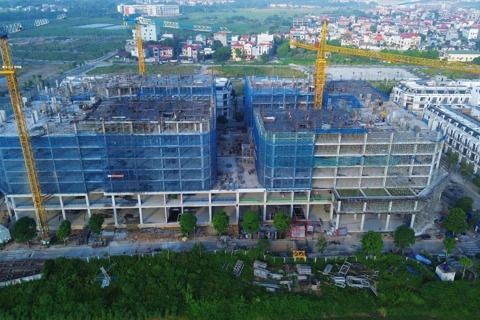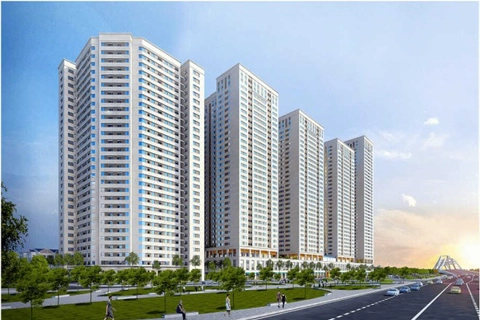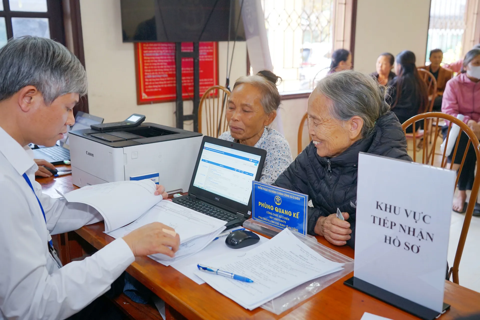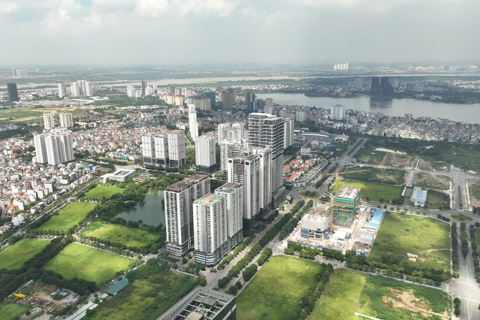Property
Regulations needed to ensure condotel investors' rights: Assoc.
Aug 05, 2018 / 11:49 AM
The government has no specific regulations for maintenance and management of the condotel model which has seen a boom over the past several years.
The Ministry of Construction should cooperate with the Ministry of Culture, Sports and Tourism to promulgate regulations on condotel to ensure investors' interests and help the tourism property industry to thrive in a sustainable manner, said Deputy Chairman of the Vietnam Real Estate Association Nguyen Manh Ha at a forum in Hanoi on August 4.
The condotel model is similar to the serviced apartment or hotel apartment. In basic terms, an investor buys a condotel, a condominium in a hotel building, and then let the hotel owner exploit it as a normal hotel room. The profit is shared according to an agreement.
However, the government until now has no specific regulations for maintenance, management or profit sharing of condotels, he said.
Around 12,500 transactions for condotels and resort villas were made in 2017. The room for this segment remains large despite a recent influx of investment, Ha said.
"There would be no large-scale resort projects as we have seen over the past years if the capital raising model for condotel did not exist," he noted.
Speaking at the forum, General Manager of Novotel Phu Quoc Resort Lee Pearce suggested the investment in condotels needs strong governance controls monitored by the central government and there will be more notable upsides of investment.
However, the seaside developments of condotel style accommodation would fit hand in glove with the needs of global tourism trends such as unchartered destinations, community-focused hotels or new hotel technology, said Pearcce.
Possessing great potential for seaside tourism development, Vietnam has become an attractive destination for domestic tourists as well as international tourists in the recent years.
According to the statistics of the Vietnam National Administration of Tourism, the tourism sector of Vietnam has witnessed impressive growth rates over the years, from 30 to 40% annually.
In 2017, the number of domestic tourists reached over 73 million and the number of foreign tourists reached 12.9 million, a growth of 30% compared to the previous year, gaining a total revenue for the sector of nearly US$22.3 billion.
This figure is estimated to rise much more by 2020, particularly the number of domestic as well as foreign tourists to Vietnam may even reach 100 million, of which 20 million will be international tourists, helping the tourism exports receive over US$20 billion.
Seeing the prominence of tourism sector, many investors have built a series of large scale resorts, hotels and amusement parks in the coastal areas. Nevertheless, seaside tourism real estate market these days seems to be enduring lots of adversities.
According to a recent report of Vietnam Association of Realtors, this market is experiencing a sharp fall in both supply and market liquidity in most of crucial areas for tourism and resort property development in the seaside areas such as Da Nang city, Nha Trang city, Quang Ninh province and Phu Quoc island.
One of the most concerning issues for buyers is the legal uncertainty with seaside tourism real estate projects plus the risk of profit commitment or the way to effectively manage, exploit and operate this type of property, according to theLeader.vn.

Deputy Chairman of Vietnam Real Estate Association Nguyen Manh Ha. Photo: theLeader.vn
|
However, the government until now has no specific regulations for maintenance, management or profit sharing of condotels, he said.
Around 12,500 transactions for condotels and resort villas were made in 2017. The room for this segment remains large despite a recent influx of investment, Ha said.
"There would be no large-scale resort projects as we have seen over the past years if the capital raising model for condotel did not exist," he noted.
Speaking at the forum, General Manager of Novotel Phu Quoc Resort Lee Pearce suggested the investment in condotels needs strong governance controls monitored by the central government and there will be more notable upsides of investment.
However, the seaside developments of condotel style accommodation would fit hand in glove with the needs of global tourism trends such as unchartered destinations, community-focused hotels or new hotel technology, said Pearcce.

Delegates joined the discussion session of the Vietnam Seaside Tourism Real Estate Forum 2018. Photo: Theleader.vn
|
According to the statistics of the Vietnam National Administration of Tourism, the tourism sector of Vietnam has witnessed impressive growth rates over the years, from 30 to 40% annually.
In 2017, the number of domestic tourists reached over 73 million and the number of foreign tourists reached 12.9 million, a growth of 30% compared to the previous year, gaining a total revenue for the sector of nearly US$22.3 billion.
This figure is estimated to rise much more by 2020, particularly the number of domestic as well as foreign tourists to Vietnam may even reach 100 million, of which 20 million will be international tourists, helping the tourism exports receive over US$20 billion.
Seeing the prominence of tourism sector, many investors have built a series of large scale resorts, hotels and amusement parks in the coastal areas. Nevertheless, seaside tourism real estate market these days seems to be enduring lots of adversities.
According to a recent report of Vietnam Association of Realtors, this market is experiencing a sharp fall in both supply and market liquidity in most of crucial areas for tourism and resort property development in the seaside areas such as Da Nang city, Nha Trang city, Quang Ninh province and Phu Quoc island.
One of the most concerning issues for buyers is the legal uncertainty with seaside tourism real estate projects plus the risk of profit commitment or the way to effectively manage, exploit and operate this type of property, according to theLeader.vn.








